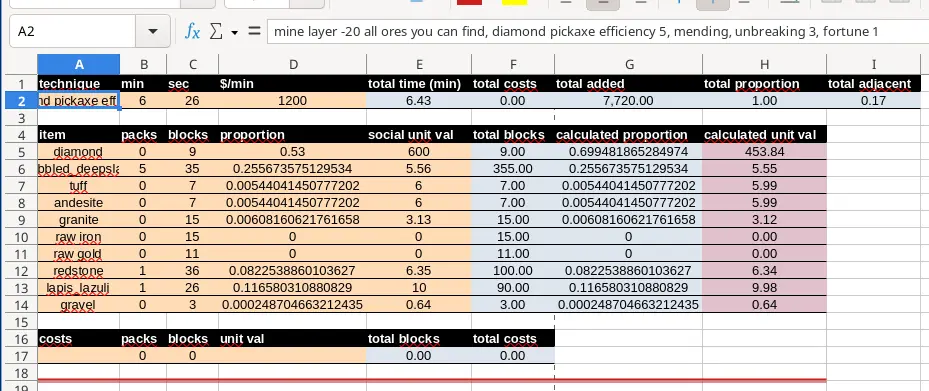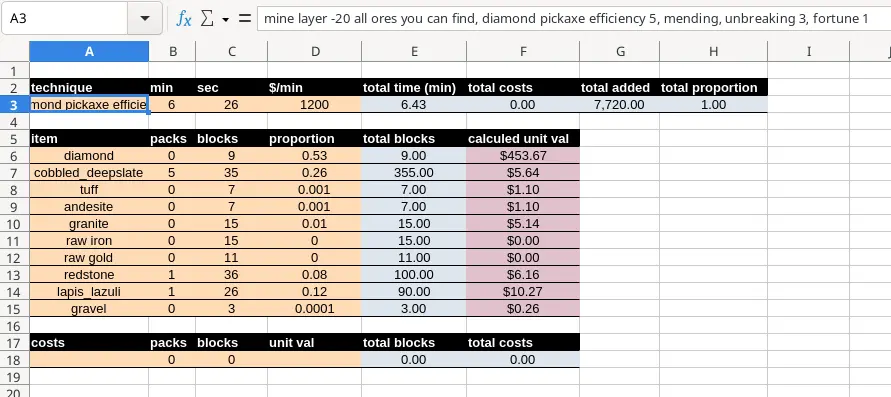i think i found a solution to my problem: you add 3 more collumns, social unit val, calculated proportion and total adjacent, like the picture. with them, you put the average social prices of items you produced in "social unit val", that will result in proportions in "calculated proportions", which are the maximum values you should put in "proportion"; then you look at the "total adjacent" which should inform you what value of proportion you can deduct from your proportions in order to get prices to go down and the total sum still be your "total added" (you can deduct only that value for all items, not for each item, so you may divide that between all type of items if you want to lower the price of all items). if the value is negative you cant produce at an socially average value (you cant produce the items and you be better buying from others who have the lower price).


Excel
A community dedicated to any discussion about Excel. QnA, Discussion of other spreadsheet applications and ancillary programming/scripting are also welcome.
What is the initial investment on that diamond pickaxe?
At what point do you break even?
i would usually put the pickaxe at "costs" with the cost of 4 diamonds to repair the entire pickaxe in the anvil (not the full cost of 4 diamonds but the full cost divided by the quantity wasted on production) but the pickaxe has mending, which means it repairs itself when i get XP and as i got a lot of redstones and such it doesnt count as a cost.
Ah, sorry. I didn't realise this was an excel (help) community.
I was just about to ask about the proportion...
Also, I'm not an excel person, but feel I have to help!
Based on your research, there will be a total number of blocks mined which you need to account for.
So, total up the number of blocks mined (*) and divide that by the number of blocks found.
This will give you the ratio of diamond ore blocks to total blocks.
I feel like you must be doing something similar for the value?
*: worth having this total near the top in static rows, so you don't have to do strange cell references.
This also allows you to expand your sheets to have further seeds/research-projects which can give a summary view of the average (maybe multiple summaries for different depths)
in that example i worked for 6,43 minutes which should give me a total of $7720,00 (6,43x1200 which is the average rate), in that time i produced, with my specific technique, diamonds, redstone, iron, gold, andesite, gravel, etc. what im trying to accomplish is divide that 7720 in value between the diverse types of items so i can put a price tag in them.
if i do as you said, with proportion based on the amount of items acquired compared to the total amount of items the diamonds would be really cheap, and things with a lot of items acquired like redstone would be expensive. i currently set my own proportions manually so the value is distributed more to the rare items and less to the common items like gravel. I need to sell them after all, no one will buy redstone with 5x the price of a diamond.
